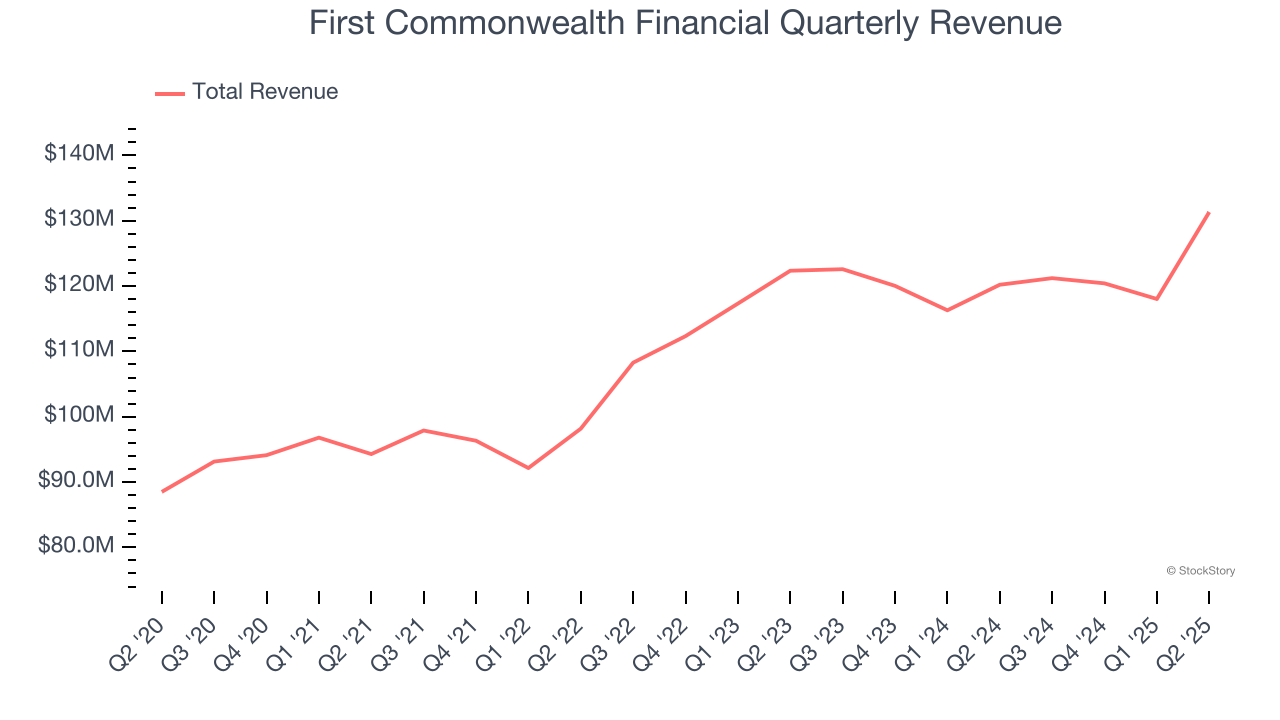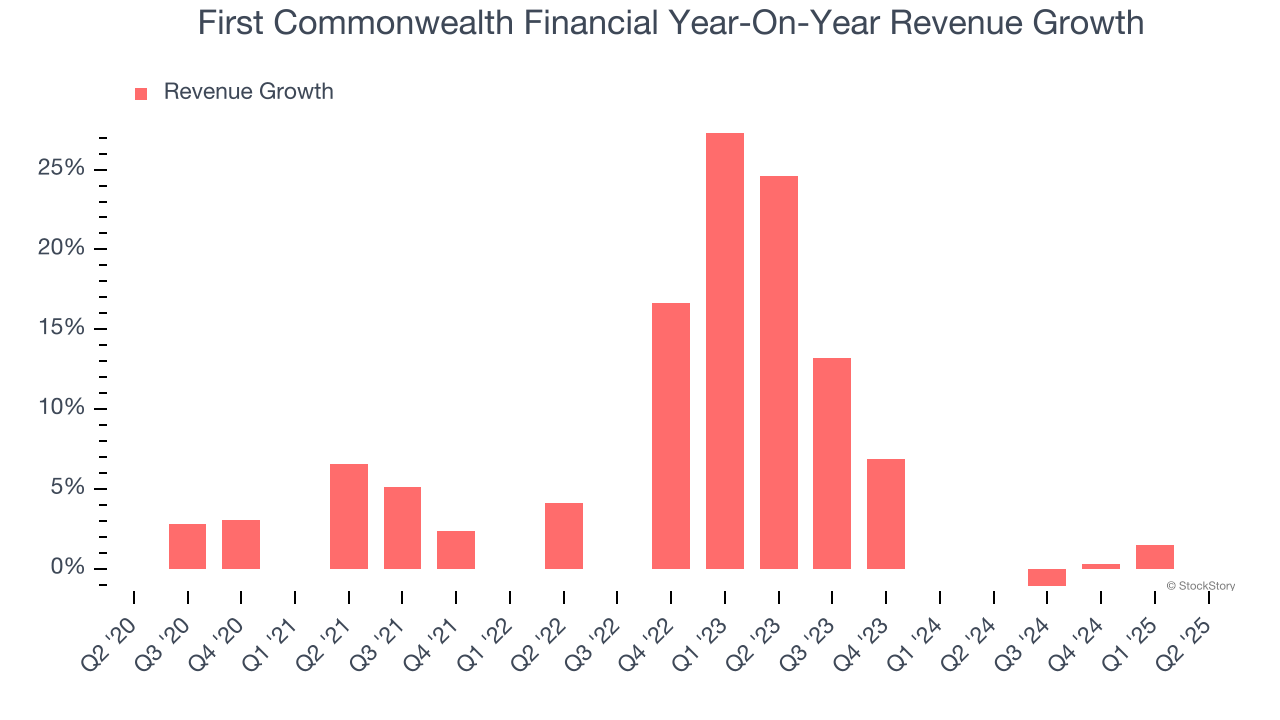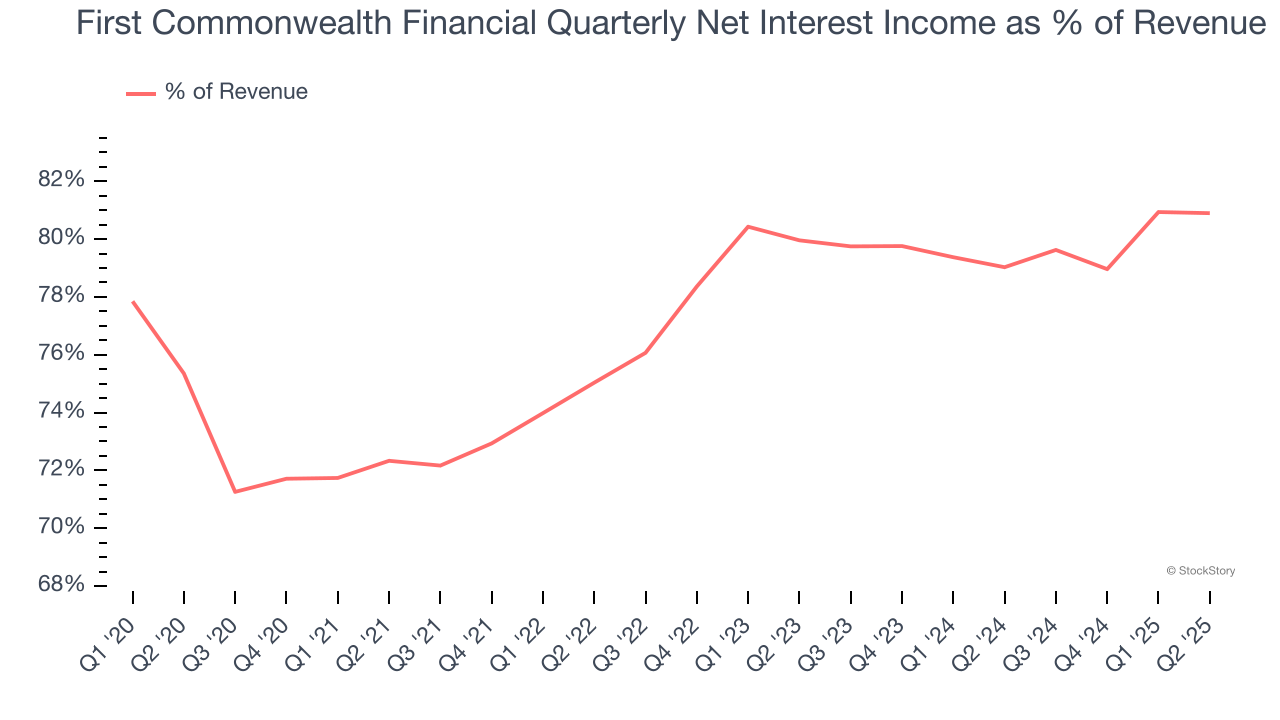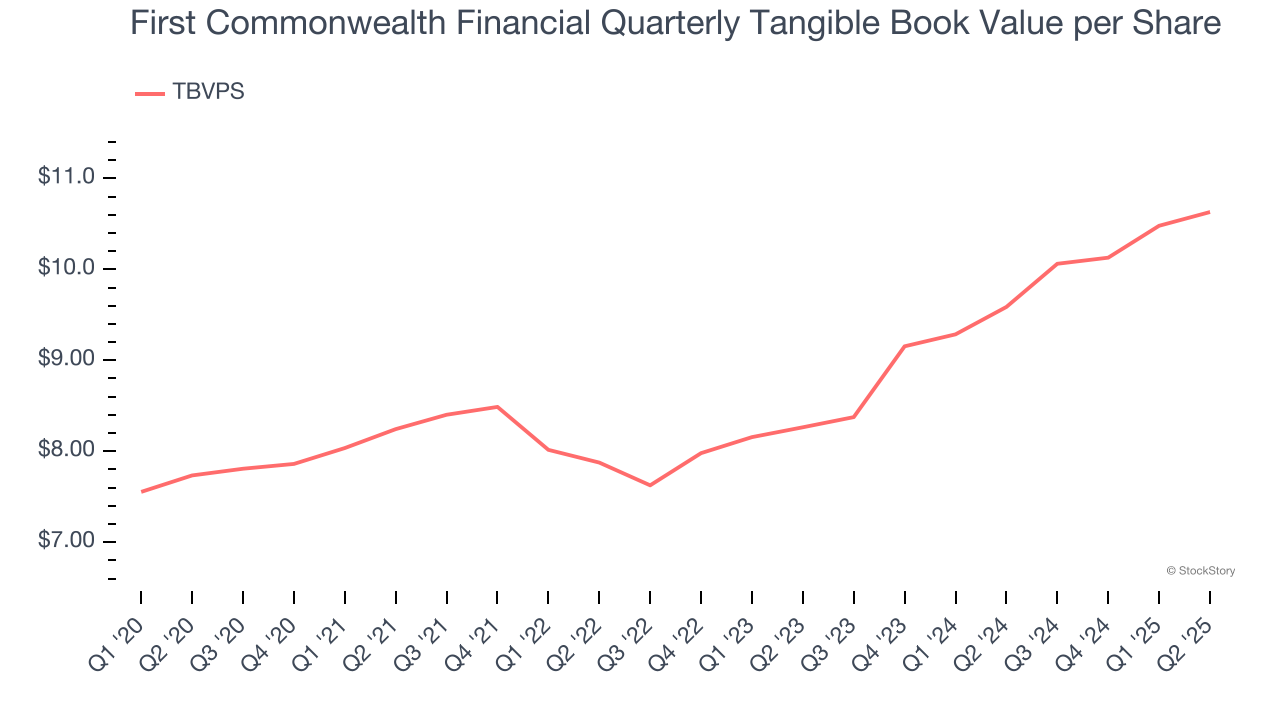
Regional banking company First Commonwealth Financial (NYSE:FCF) announced better-than-expected revenue in Q2 CY2025, with sales up 9.3% year on year to $131.3 million. Its non-GAAP profit of $0.38 per share was 9.1% above analysts’ consensus estimates.
Is now the time to buy First Commonwealth Financial? Find out by accessing our full research report, it’s free.
First Commonwealth Financial (FCF) Q2 CY2025 Highlights:
- Net Interest Income: $106.2 million vs analyst estimates of $101.8 million (11.8% year-on-year growth, 4.4% beat)
- Net Interest Margin: 3.8% vs analyst estimates of 3.7% (26 basis point year-on-year increase, 15.7 bps beat)
- Revenue: $131.3 million vs analyst estimates of $125.7 million (9.3% year-on-year growth, 4.5% beat)
- Efficiency Ratio: 54.1% vs analyst estimates of 57.8% (3.8 percentage point beat)
- Adjusted EPS: $0.38 vs analyst estimates of $0.35 (9.1% beat)
- Market Capitalization: $1.71 billion
“We are pleased to report a strong second quarter, marked by significant net interest margin expansion, robust loan growth, and the successful completion of the CenterBank acquisition,” stated T. Michael Price, President and Chief Executive Officer.
Company Overview
Tracing its roots back to the Great Depression era of 1934, First Commonwealth Financial (NYSE:FCF) is a financial holding company that provides consumer and commercial banking, wealth management, and insurance services across Pennsylvania and Ohio.
Sales Growth
Net interest income and and fee-based revenue are the two pillars supporting bank earnings. The former captures profit from the gap between lending rates and deposit costs, while the latter encompasses charges for banking services, credit products, wealth management, and trading activities.
Luckily, First Commonwealth Financial’s revenue grew at a decent 6.6% compounded annual growth rate over the last five years. Its growth was slightly above the average bank company and shows its offerings resonate with customers.

Long-term growth is the most important, but within financials, a half-decade historical view may miss recent interest rate changes and market returns. First Commonwealth Financial’s recent performance shows its demand has slowed as its annualized revenue growth of 3.3% over the last two years was below its five-year trend.  Note: Quarters not shown were determined to be outliers, impacted by outsized investment gains/losses that are not indicative of the recurring fundamentals of the business.
Note: Quarters not shown were determined to be outliers, impacted by outsized investment gains/losses that are not indicative of the recurring fundamentals of the business.
This quarter, First Commonwealth Financial reported year-on-year revenue growth of 9.3%, and its $131.3 million of revenue exceeded Wall Street’s estimates by 4.5%.
Net interest income made up 76.7% of the company’s total revenue during the last five years, meaning lending operations are First Commonwealth Financial’s largest source of revenue.

Our experience and research show the market cares primarily about a bank’s net interest income growth as non-interest income is considered a lower-quality and non-recurring revenue source.
Unless you’ve been living under a rock, it should be obvious by now that generative AI is going to have a huge impact on how large corporations do business. While Nvidia and AMD are trading close to all-time highs, we prefer a lesser-known (but still profitable) stock benefiting from the rise of AI. Click here to access our free report one of our favorites growth stories.
Tangible Book Value Per Share (TBVPS)
Banks operate as balance sheet businesses, with profits generated through borrowing and lending activities. Valuations reflect this reality, emphasizing balance sheet strength and long-term book value compounding ability.
This explains why tangible book value per share (TBVPS) stands as the premier banking metric. TBVPS strips away questionable intangible assets, revealing concrete per-share net worth that investors can trust. Other (and more commonly known) per-share metrics like EPS can sometimes be murky due to M&A or accounting rules allowing for loan losses to be spread out.
First Commonwealth Financial’s TBVPS grew at a solid 6.6% annual clip over the last five years. TBVPS growth has also accelerated recently, growing by 13.4% annually over the last two years from $8.26 to $10.63 per share.

Over the next 12 months, Consensus estimates call for First Commonwealth Financial’s TBVPS to grow by 9.5% to $11.64, decent growth rate.
Key Takeaways from First Commonwealth Financial’s Q2 Results
We enjoyed seeing First Commonwealth Financial beat analysts’ revenue expectations this quarter. We were also glad its net interest income outperformed Wall Street’s estimates. Zooming out, we think this was a good print with some key areas of upside. The stock remained flat at $16.07 immediately following the results.
Big picture, is First Commonwealth Financial a buy here and now? If you’re making that decision, you should consider the bigger picture of valuation, business qualities, as well as the latest earnings. We cover that in our actionable full research report which you can read here, it’s free.
